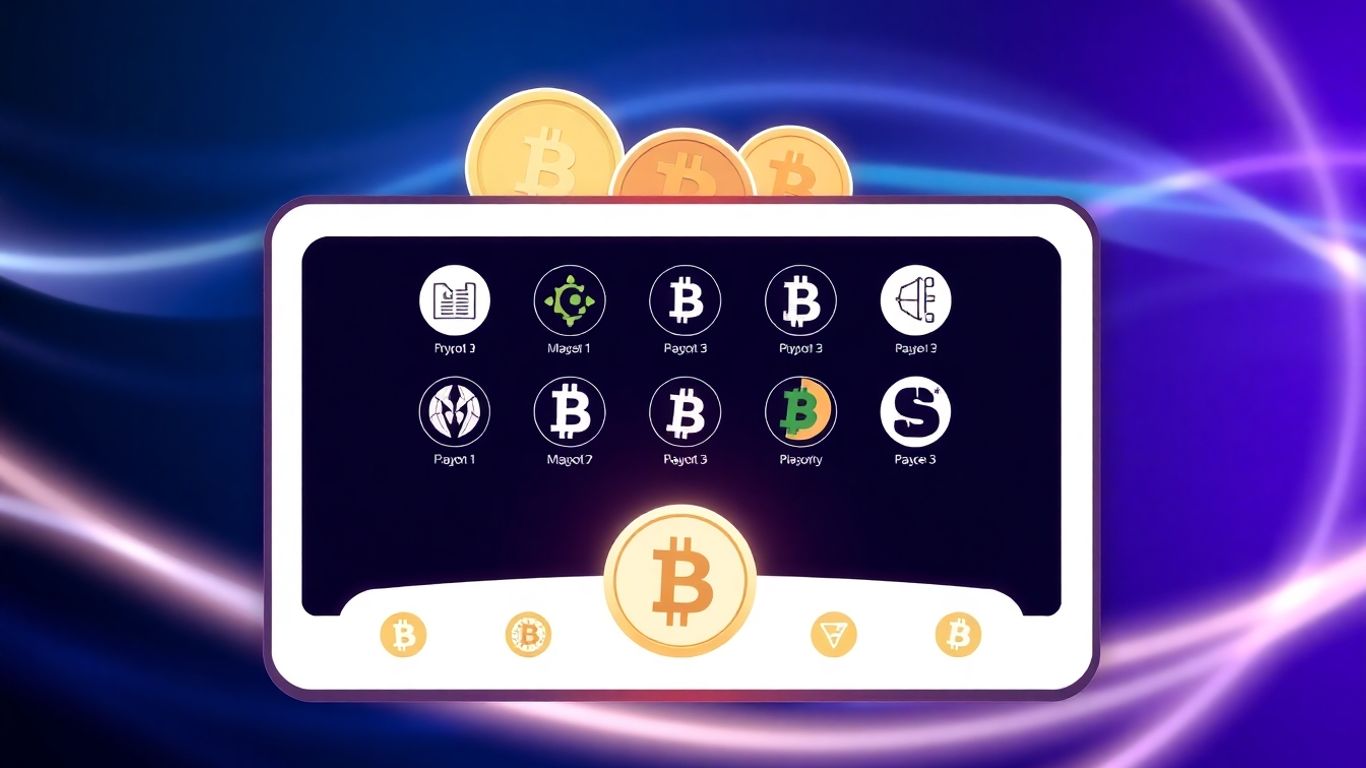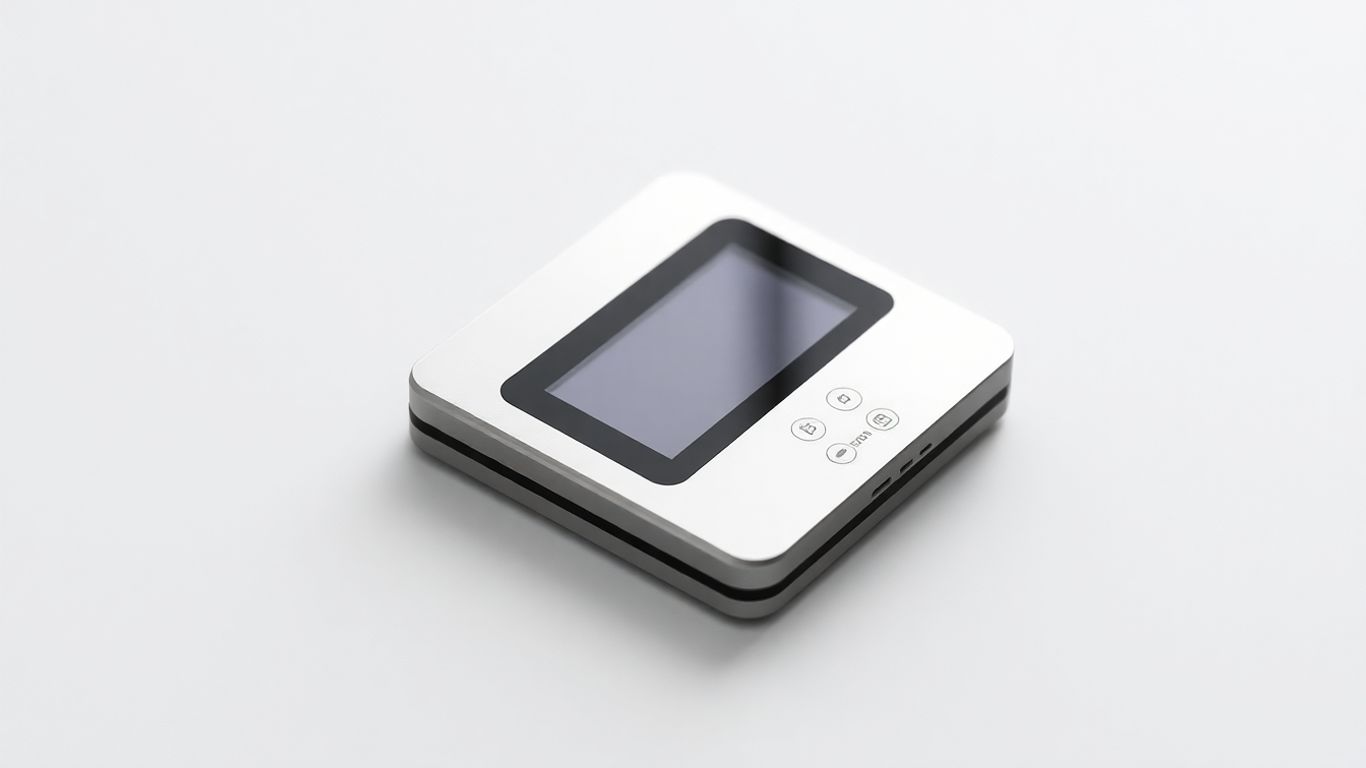[ newsletter ]
Stay ahead of Web3 threats—subscribe to our newsletter for the latest in blockchain security insights and updates.
Thank you! Your submission has been received!
Oops! Something went wrong. Please try again.
Discover the best crypto wallet Reddit users recommend for 2025. Explore top picks like Exodus, Coinbase Wallet, and Ledger Nano Flex for secure crypto management.





Finding the right crypto wallet can feel like a maze, especially with so many options out there. People on Reddit often share their experiences, which is super helpful when trying to figure out the best crypto wallet reddit 2025 has to offer. We've sifted through those discussions to bring you a list of wallets that users are actually talking about and recommending. Whether you're just starting out or you've been in the crypto space for a while, this guide should give you a good starting point for keeping your digital assets safe and accessible.
Exodus is a solid choice if you're looking for a wallet that's easy to use but still packs a punch. It's great for managing a bunch of different digital coins, supporting over 50 blockchain networks, which is pretty impressive. Plus, it lets you swap your crypto right within the app, making things convenient.
What makes Exodus stand out is its user-friendly design, making it accessible even if you're relatively new to crypto. It also plays nicely with Trezor hardware wallets, giving you an extra layer of security if you want it.
Here's a quick look at what Exodus offers:
While Exodus gets high marks for security and ease of use, it's worth noting that you don't have direct control over transaction fees, and it hasn't undergone third-party audits. Still, for many users, the convenience and broad functionality make it a top pick.
Exodus aims to simplify the crypto experience. It's designed to be intuitive, so you can manage your digital assets without getting bogged down in technical details. This focus on accessibility is a big reason why it's so popular.

Coinbase Wallet is a solid choice, especially if you're already familiar with the Coinbase ecosystem. It's a non-custodial wallet, meaning you're in charge of your private keys, which is a big deal for security. It supports a huge number of coins and NFTs, making it great for collectors or anyone holding a variety of digital assets.
Setting it up is pretty straightforward, and it connects easily with decentralized applications (dApps). They've also put in some good security features like transaction previews and app lock. Plus, they have this "Quests" thing where you can actually earn crypto by learning about different projects, which is a nice touch for beginners.
One thing to note is that while it's non-custodial, its close ties to the main Coinbase exchange might make some users a bit hesitant if they're looking for complete separation. Also, it's primarily a mobile app, so if you're a desktop-first kind of person, you might find that a bit limiting.
Coinbase Wallet offers a good balance of user-friendliness and security for managing your crypto. Its integration with dApps and educational resources makes it accessible for many users.
It's got pretty good ratings on the app stores, which usually means people are finding it easy to use and trust. If you're looking for a wallet that plays well with the broader crypto world and offers a good user experience, Coinbase Wallet is definitely worth checking out. You can easily transfer assets to offline storage for extra protection, which is a smart move for larger holdings. Check out their features for more details on how it can help manage your digital assets.
Zengo is a wallet that really tries to make things simple, especially if you're new to crypto. They've ditched the old-school seed phrases and private keys, which honestly, can be a real headache to keep track of. Instead, they use something called Multi-Party Computation, or MPC, along with three-factor authentication. This means recovering your account is supposed to be much easier and safer, without that panic of losing a piece of paper.
It's a mobile-first kind of wallet, so don't expect a desktop app or browser extension here. But for managing your crypto on the go, it's pretty slick. You can buy, sell, and swap coins right within the app, and they even have features for staking and interacting with dApps. Plus, they offer ways to move money in and out of crypto using regular currency, which is handy.
While the convenience is a big plus, some users have noted that the fees for in-app exchanges can be a bit higher than other options. Also, it's not entirely open-source, which might be a concern for some privacy-focused individuals. Still, for a straightforward and secure mobile crypto experience, Zengo is definitely worth a look, and they offer good customer support.
Zengo aims to remove the typical complexities of crypto wallets by using a keyless security model. The app's design is appealing, and the setup process is straightforward, making it a good choice for those just starting out.
Sparrow is a desktop wallet that really focuses on Bitcoin users who want a bit more control. It’s not for someone just dipping their toes into crypto, you know? You’ll need to have a basic grasp of how Bitcoin works to get the most out of it.
What Sparrow does well is give you options. You can connect to different servers for your transactions, whether you prefer using public ones, your own private server, or even a Bitcoin Core node. This flexibility is pretty neat if you're particular about your privacy and how your data is handled.
Here’s a quick look at some of its features:
It’s a lightweight client, meaning it doesn’t need a massive amount of storage space on your computer, which is always a bonus. However, don't expect to swap between different cryptocurrencies or buy crypto directly with fiat money using Sparrow; it’s pretty much a Bitcoin-only affair, and you’ll need other services for those things.
If you're serious about Bitcoin and want a wallet that respects your privacy and offers granular control over your funds, Sparrow is definitely worth a look. It’s a solid choice for those who understand the tech and want to manage their Bitcoin without relying on third-party servers for everything.
BlueWallet is a solid choice if you're primarily focused on Bitcoin and want a mobile-first experience. It really shines with its straightforward setup and a clean interface that doesn't overwhelm you, even if you're just starting out. You can create multiple wallets, which is handy for organizing different funds, and it even supports the Lightning Network for faster, cheaper transactions. It’s a self-custodial wallet, meaning you hold your private keys, which gives you direct control over your assets.
One of the standout features is its flexibility. You can set up standard Bitcoin wallets, but also multi-signature wallets for added security or watch-only wallets if you just want to monitor balances. Plus, there's a neat decoy PIN option that can reveal a secondary, less-funded wallet if you're ever pressured.
While BlueWallet is great for Bitcoin, it's important to remember it doesn't support other cryptocurrencies. If you're looking to diversify beyond Bitcoin, you'll need to consider a different wallet for those assets. Also, you can't buy or sell crypto directly within the app, so you'll need to use an exchange for those activities.
It's definitely a wallet that caters to both beginners and those who appreciate more technical control, striking a good balance between ease of use and advanced features. For anyone looking for a reliable mobile Bitcoin solution, BlueWallet is worth checking out, especially if you're interested in exploring the Lightning Network.
BlueWallet is often praised for its user-friendly design and robust Bitcoin features.
Trust Wallet is a solid choice if you're looking for a mobile-first crypto experience. It's pretty straightforward to get started with, which is a big plus for folks who are still getting the hang of things. You can grab it for your phone, and it supports a ton of different coins and tokens, which is great if you're into more than just Bitcoin or Ethereum. Plus, it has built-in features for viewing NFTs, which is handy if that's your thing.
One of the things that stands out is how many different blockchains it can connect with. It's not just limited to a couple; it really covers a wide range, making it easy to manage assets from various networks all in one place.
While it's great for everyday use and managing a variety of assets, some users might find the options for tweaking transaction fees a bit limited compared to more advanced wallets. It's a trade-off for its simplicity, I guess.
Overall, Trust Wallet is a good all-around mobile wallet. It's easy to use, supports a lot of different crypto assets, and has some nice extras like NFT viewing and in-app swaps. It's definitely worth checking out if you spend most of your time managing crypto on your phone.
MetaMask has really cemented itself as the go-to wallet for anyone diving into the Web3 space. It's not just about holding crypto; it's your digital passport for interacting with decentralized applications, or dApps. Think of it as your browser extension that lets you easily connect to thousands of different services on the blockchain, from decentralized finance (DeFi) platforms to NFT marketplaces. Its widespread adoption means most new dApps will have MetaMask integration right out of the gate.
Setting it up is pretty straightforward, usually involving a browser extension or a mobile app. You get a secret recovery phrase, which is super important to keep safe – like, really safe. Losing that means losing access to your funds, so treat it like gold.
One of the things users appreciate is the control it gives them. You can adjust transaction fees (gas) and set slippage tolerance, which is handy when you're trying to get a trade executed at a specific price. It also supports a wide range of tokens, and you can add custom ones if they aren't listed by default.
While MetaMask is fantastic for interacting with dApps, it's important to remember it's a hot wallet. This means it's connected to the internet, so for storing large amounts of crypto long-term, you might want to consider moving them to a hardware wallet.
MetaMask is a solid choice for getting started with Web3 technologies and exploring the decentralized web. It's constantly being updated, and the community around it is huge, which means plenty of support if you run into any issues.

The Trezor Model One is a bit of a veteran in the hardware wallet space, first showing up way back in 2014. It was one of the first devices designed to keep your private keys offline, away from your computer. For its age, it's still a solid choice, especially if you're just getting started with hardware wallets and don't want to spend a fortune. It costs around $49, which is pretty reasonable.
What makes it stand out is that you have to physically confirm transactions on the device itself. This means even if your computer gets a virus, your crypto should still be safe. You also set up a PIN and can add a passphrase for extra security. It supports a lot of different coins and tokens, and you can use it with various wallet apps, including Trezor's own desktop software called Trezor Suite. This software lets you buy, sell, and trade crypto right from your computer.
While it doesn't have all the fancy features of newer wallets, like a touchscreen or Bluetooth, the Trezor Model One focuses on doing the core job of security really well. It's a no-frills device that prioritizes keeping your digital assets safe through straightforward, physical verification.
The Ledger Nano Flex is a newer player in the hardware wallet space, aiming to blend robust security with user-friendly features. It's built around a secure element chip, which is pretty standard for hardware wallets, designed to keep your private keys isolated from your computer or phone. This means even if your connected device gets compromised, your crypto should still be safe.
One of the standout features is its display. It's a decent-sized touchscreen, making it easier to review transactions and confirm actions directly on the device. Plus, it has NFC capabilities, which is a bit of a novelty for hardware wallets, allowing for some convenient connectivity options. However, this added connectivity, while useful, can also introduce new potential vulnerabilities that aren't present in more basic, air-gapped devices.
To get the most out of the Nano Flex, you'll typically need to use the Ledger Live application. This software is where you manage your coins, update the device, and interact with various crypto services. It's a pretty polished interface, but it does mean you're relying on Ledger's ecosystem.
While the Ledger Nano Flex packs in some modern features like a touchscreen and NFC, it's worth noting that it's a relatively new product. This means it hasn't been put through the same long-term testing and scrutiny as some of Ledger's older models. The added connectivity, while convenient, is also something to consider if maximum isolation is your top priority.
It supports a wide range of coins and tokens, which is a big plus if you dabble in many different cryptocurrencies. However, some users have pointed out that the reliance on Ledger Live for full functionality and the fact that the physical devices aren't open-source, unlike some competitors, might be a concern for those who prefer maximum transparency and auditability.
Kraken Wallet is a bit different because it's a separate thing from the main Kraken exchange, even though it's from the same company. This means you get to keep your private keys, which is a big deal for a lot of crypto folks who want full control. It’s designed for people who understand what self-custody means but still want the backing of a big, known crypto name.
It supports popular coins like Bitcoin and Ethereum, plus a bunch of ERC-20 tokens. What’s cool is its connection to decentralized finance (DeFi) apps. You can use it to interact with things like lending or yield farming directly from the wallet. It also plays nice with hardware wallets from Ledger and Trezor, which is a good move for extra security.
If you lose your private keys with a self-custody wallet like Kraken Wallet, there's no customer support that can help you get them back. It's all on you to keep them safe.
While it’s got a lot going for it, especially the self-custody aspect combined with a known brand, it’s not for everyone. If you're just starting out and want something super simple, this might have a bit of a learning curve. Also, the number of cryptocurrencies you can hold here is less than what you find on the main Kraken exchange itself. Still, for privacy-minded users who want that extra layer of control and access to DeFi, Kraken Wallet is definitely worth a look.
So, we've looked at a bunch of crypto wallets that people on Reddit seem to like for 2025. Remember, picking the right one really comes down to what you need. Whether you're all about top-notch security with a hardware wallet or need something easy for daily use, there's an option out there. Keep in mind that security features like two-factor authentication and private key control are super important for keeping your digital money safe. It's also smart to think about whether you want a wallet that supports lots of different coins or just one or two. Ultimately, doing your own research and maybe even trying out a few smaller amounts first will help you find the wallet that feels just right for your crypto adventures.
A crypto wallet is like a digital bank account for your digital money, like Bitcoin or Ethereum. It lets you store, send, and receive these digital coins. You need one to actually use and manage your cryptocurrency, kind of like how you need a wallet for your regular cash.
Think of a hot wallet as a wallet you carry in your pocket – it's connected to the internet, making it easy to use for quick buys or trades. A cold wallet is like a safe deposit box; it's offline, making it super secure for storing your crypto long-term, but a bit less convenient for daily use.
Yes, generally. Non-custodial wallets mean you're in charge of your private keys, which are like the secret codes to your crypto. This means no company can access or lose your funds. However, it also means you're responsible for keeping those keys safe – if you lose them, your crypto is gone forever.
You should focus on security first! Look for features like two-factor authentication (an extra step to log in) and strong encryption. Also, consider how easy it is to use, if it supports the coins you want to hold, and if it has good customer support in case you run into trouble.
Many wallets are designed to hold a variety of digital coins, not just one. These are called multi-chain wallets. It's super handy because you can manage your Bitcoin, Ethereum, and other crypto assets all from one place.
Always use strong, unique passwords and enable two-factor authentication. Never share your private keys or seed phrase with anyone. Keep your wallet software updated, and be cautious of suspicious links or requests for your information. For extra safety, consider a hardware wallet for larger amounts.


